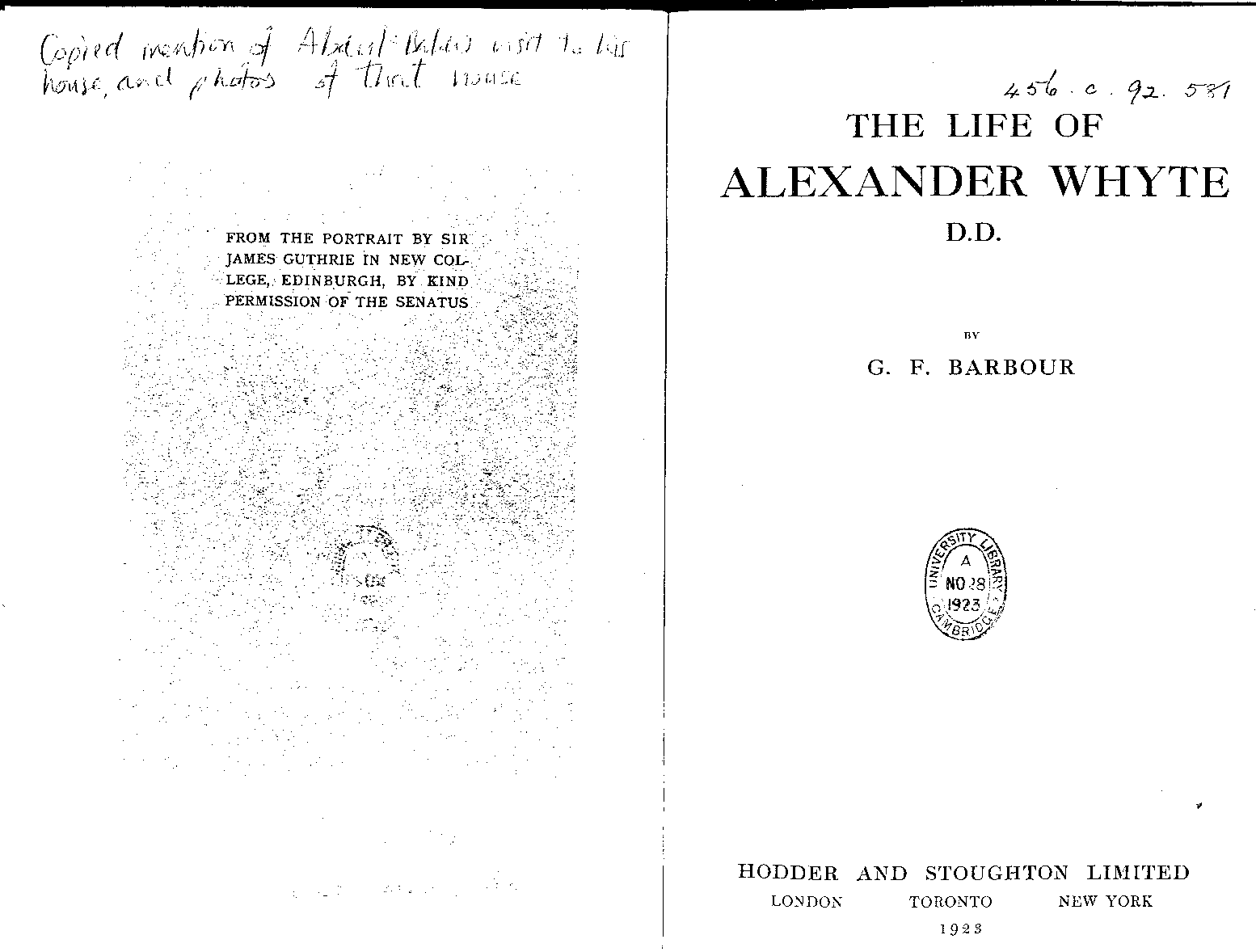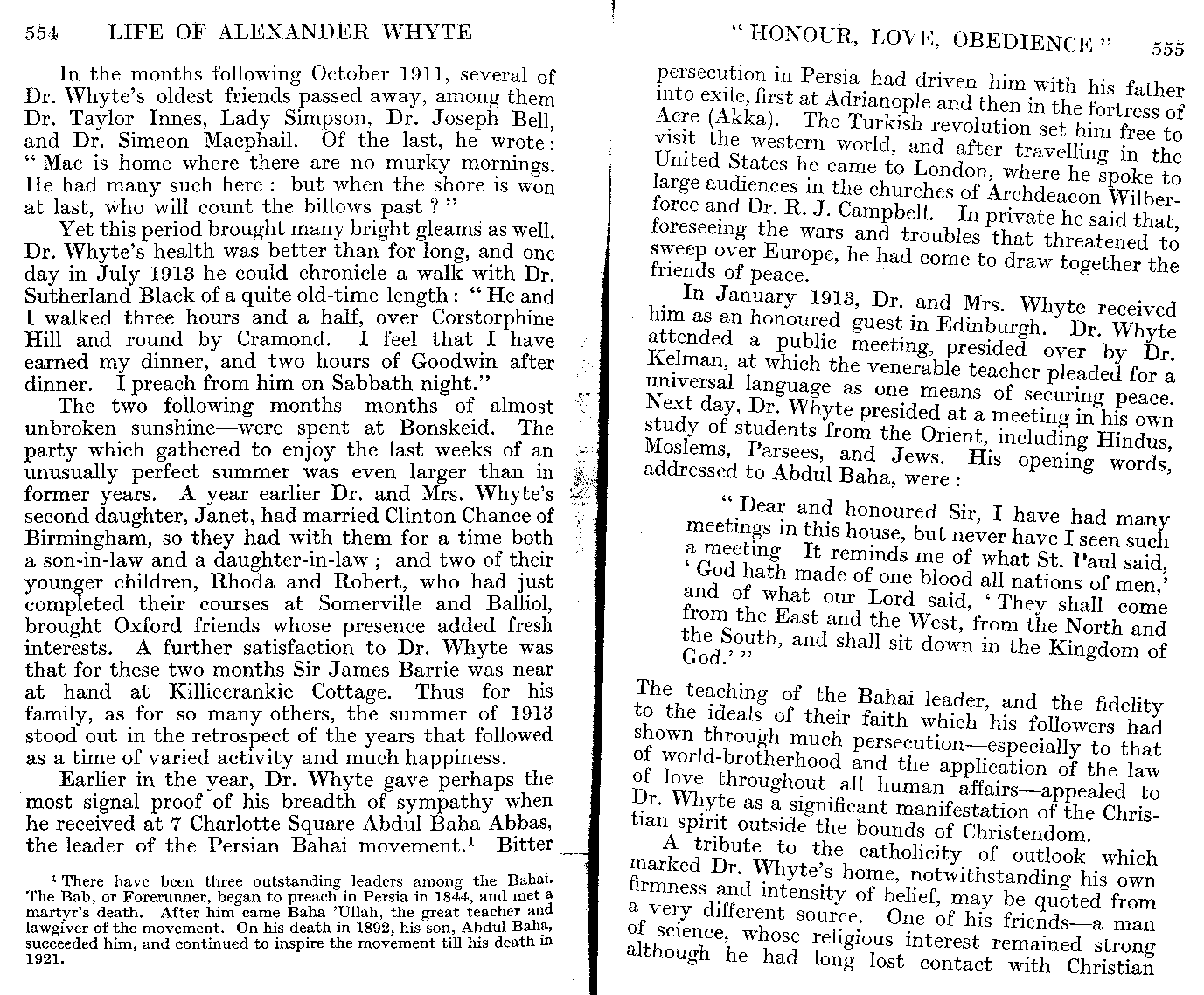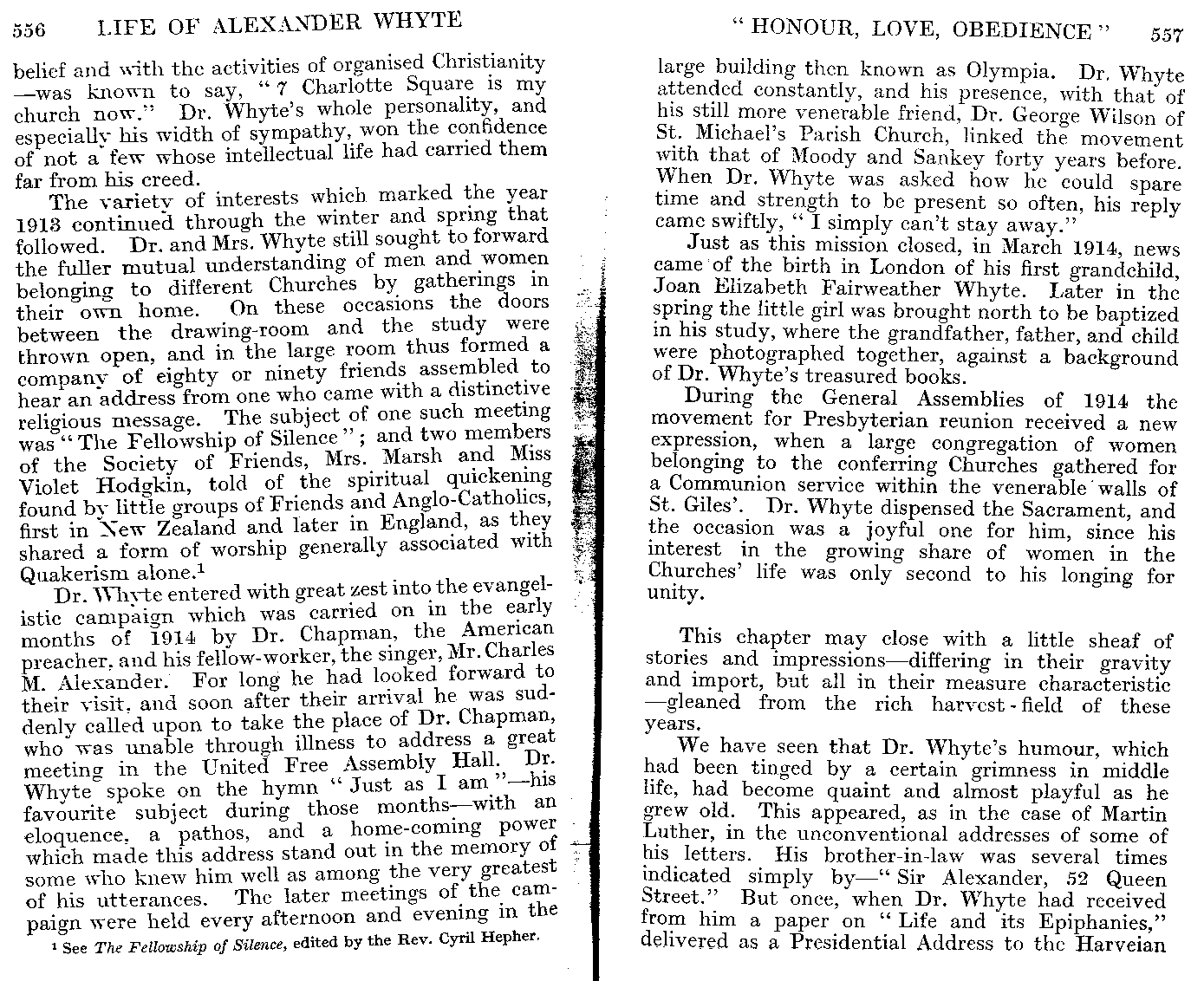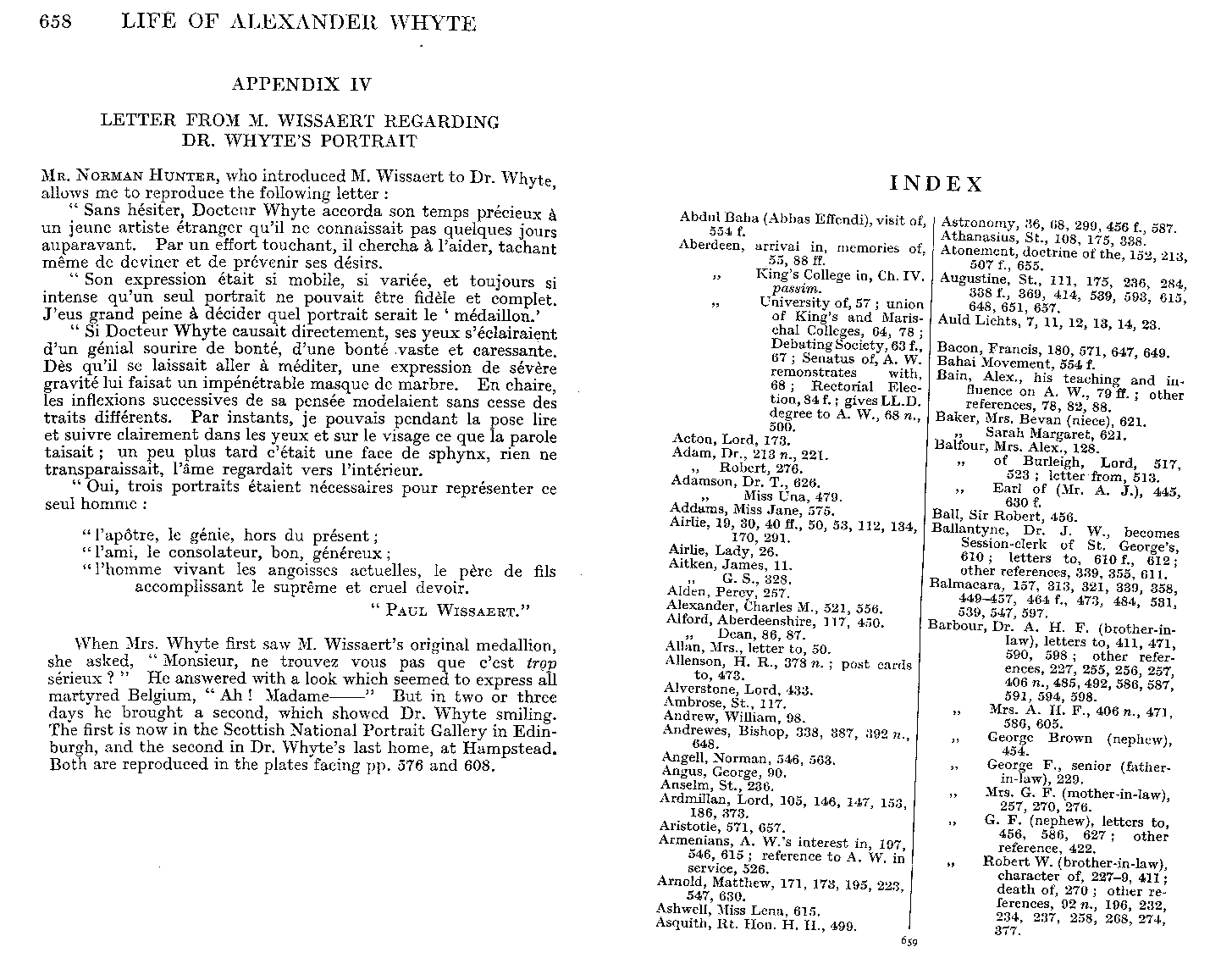1. Text
[page 554]
"HONOR, LOVE, OBEDIENCE"
In the months following October 1911, several of Dr. Whyte's oldest friends passed away, among them Dr. Taylor Innes, Lady Simpson, Dr. Joseph Bell, and Dr. Simeon Macphail. Of the last, he wrote: "Mac is home where there are no murky mornings. He had many such here: but when the shore is won at last, who will count the billows past?"
Yet this period brought many bright gleams as well. Dr. Whyte's health was better than for long, and one day in July 1918 he could chronicle a walk with Dr. Sutherland Black of a quite old-time length: "He and I walked three hours and a half, over Corstorphine Hill and round by Cramond. I feel that I have earned my dinner, and two hours of Goodwin after dinner. I preach from him on Sabbath night."
The two following months — months of almost unbroken sunshine — were spent at Bonskeid. The party which gathered to enjoy the last weeks of an unusually perfect summer was even larger than in former years. A year earlier Dr. and Mrs. Whyte's second daughter, Janet, had married Clinton Chance of Birmingham, so they had with them for a time both a son-in-law and a daughter-in-law; and two of their younger children, Rhoda and Robert, who a just completed their courses at Somerville and Balliol, brought Oxford friends whose presence added fresh interests. A further satisfaction to Dr. Whyte was that for these two months Sir James Barrie was near at hand at Killiecrankie Cottage. Thus for his family, as for so many others, the summer of 1913 stood out in the retrospect of the years that followed as a time of varied activity and much happiness.
Earlier in the year, Dr. Whyte gave perhaps the most signal proof of his breadth of sympathy when he received at 7 Charlotte Square Abdul Baha Abbas, the leader of the Persian Bahai movement.1 Bitter
1 There have been three outstanding leaders among the Bahai. The Bab, or Forerunner, began to preach in Persia in 1844, and met martyr's death. After him came Baha 'Ullah, the great teacher and lawgiver of the movement. On his death in 1892, his son, Abdul Baha, succeeded him, and continued to inspire the movement till his death in 1921.
[page 555]
persecution in Persia had driven him with his father into exile, first at Adrianople and then in the fortress of Acre (Akka). The Turkish revolution set him free to visit the western world, and after travelling in the United States he came to London, where he spoke to large audiences in the churches of Archdeacon Wilberforce and Dr. R. J. Campbell. In private he said that, foreseeing the wars and troubles that threatened to sweep over Europe, he had come to draw together the friends of peace.
In January 1913, Dr. and Mrs. Whyte received him as an honoured guest in Edinburgh. Dr. Whyte attended a public meeting, presided over by Dr. Kelman, at which the venerable teacher pleaded for a universal language as one means of securing peace. Next day, Dr. Whyte presided at a meeting in his own study of students from the Orient, including Hindus, Moslems, Parsees, and Jews. His opening words, addressed to Abdul Baha, were:
"Dear and honoured Sir, I have had many meetings in this house, but never have I seen such a meeting. It reminds me of what St. Paul said, 'God hath made of one blood all nations of men,' and of what our Lord said, 'They shall come from the East and the West, from the North and the South, and shall sit down in the Kingdom of God.'"
The teaching of the Bahai leader, and the fidelity to the ideals of their faith which his followers had shown through much persecution — especially to that of world-brotherhood and the application of the law of love throughout all human affairs — appealed to Dr. Whyte as a significant manifestation of the Christian spirit outside the bounds of Christendom.
A tribute to the catholicity of outlook which marked Dr. Whyte's home, notwithstanding his own firmness and intensity of belief, may be quoted from a very different source. One of his friends — a man of science, whose religious interest remained strong although he had long lost contact with Christian belief and with the activities of organized Christianity — was known to say, "7 Charlotte Square is my church now." Dr. Whyte's whole personality, and especially his width of sympathy, won the confidence of not a few whose intellectual life had carried them far from his creed.
2. Image scans (click image for larger version)




|
